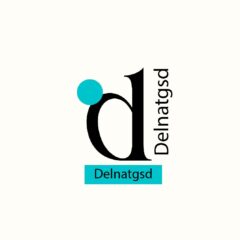Education is a fundamental pillar of human development and plays a critical role in shaping the future of individuals and societies alike. It provides people with the knowledge, skills, and values needed to navigate life’s challenges and contribute positively to their communities. Beyond the classroom, education fosters critical thinking, creativity, and the ability to solve complex problems. It empowers individuals to unlock opportunities, improve their quality of life, and participate fully in social and economic life.
From early childhood, education lays the groundwork for lifelong learning. During these formative years, children develop essential language, social, and cognitive skills that influence their future success. Quality early education nurtures curiosity, emotional intelligence, and a love for learning, creating a strong foundation for formal schooling. As children progress, education broadens their horizons by exposing them to a variety of subjects including science, mathematics, history, and the arts. This well-rounded learning helps students develop a deeper understanding of the world and themselves.
One of the most important goals of education is to promote equal opportunities. Unfortunately, millions of children and adults around the world still lack access to quality education due to poverty, conflict, discrimination, or geographic isolation. Ensuring universal access to education requires sustained https://pfqp7.com/ efforts to build schools, train skilled teachers, and provide necessary learning materials. Education systems must be inclusive, accommodating learners with diverse backgrounds, abilities, and needs to ensure no one is left behind.
Education also has a powerful impact on economic development. A skilled and knowledgeable workforce drives innovation, productivity, and economic growth. Vocational training and higher education equip individuals with practical skills needed for the job market and help meet the demands of a rapidly changing global economy. Countries that invest in education often experience higher employment rates, better health outcomes, and increased social stability.
Beyond personal and economic benefits, education fosters social cohesion and active citizenship. Schools bring together students from different backgrounds, helping to build mutual understanding, respect, and tolerance. Education promotes critical thinking and informed decision-making, which are essential for functioning democracies. Educated citizens are more likely to engage in civic activities, advocate for their rights, and contribute to positive social change.
Advances in technology have transformed education, creating new opportunities for teaching and learning. Digital tools and online platforms allow students to access vast resources, learn at their own pace, and connect with peers and instructors worldwide. However, the digital divide remains a challenge, with many communities lacking reliable internet access or necessary devices. Bridging this gap is essential to ensure that technology enhances rather than hinders educational equity.
Teachers play a central role in the success of education systems. Their dedication, expertise, and ability to inspire students greatly affect learning outcomes. Supporting teachers with professional development, fair compensation, and adequate resources helps create effective learning environments where all students can thrive. Empowered educators adapt their teaching methods to meet the diverse needs of their students, encouraging a love of learning and lifelong curiosity.
Lifelong learning has become increasingly important in today’s fast-paced world. The ability to continuously acquire new knowledge and skills helps individuals remain adaptable and competitive in the workforce. Education systems must evolve to support not only children but people of all ages through adult education, professional training, and community programs. Encouraging lifelong learning fosters personal growth and social inclusion throughout life.
In summary, education is a powerful tool for transforming lives and societies. It equips individuals with the knowledge and skills necessary to succeed, drives economic progress, and strengthens communities. Ensuring access to quality, inclusive, and lifelong education is critical for building a better and more equitable future. By investing in education, societies invest in the potential of every person and the shared prosperity of all.
